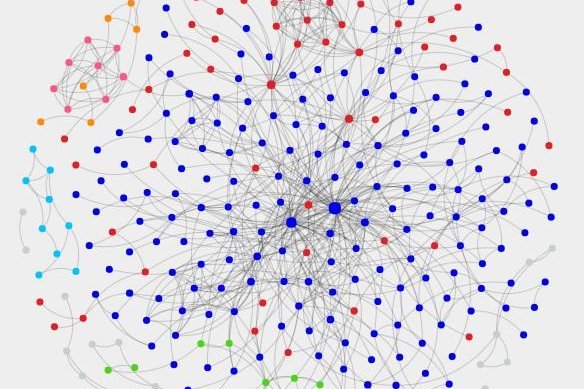Scientists used diagrams to visualize and analyze the the social network in the Ossianic epics. Photo by Coventry University
COVENTRY, Ireland, Oct. 21 (UPI) -- Historians and literary critics have long argued over the authenticity of poems published by the Scottish poet James Macpherson in 1760 -- poems he claimed were a direct translation of ancient Scottish Gaelic epics arranged by Ossian, a third-century bard.
At the time of their publication, Ossian was crowned as the Scottish heir to Homer. But in the centuries since, many have claimed Macpherson's "translations" borrow heavily from Irish mythology. In other words, they are Irish epics, reworked.
Recently, a team of researchers at Coventry University, the National University of Ireland, Galway and the University of Oxford set out to settle the debate. To do so, they decided to diagram.
The scientists mapped out the social structures present in Ossian's works, Irish mythology and Homer's epics. When they compared them, they found Ossian's characters and the relationships among them strongly resemble those found in Irish mythology while bearing little resemble to those found in Homer's poetry.
Upon publication, Ossian's works become an international success. His admirers included Napoleon, Diderot and Thomas Jefferson. They inspired many works of art during Europe's Romantic period.
Researchers say their work isn't proof of fraud. It's likely the poems of Ossian are some combination of Scots Gaelic oral traditions, Irish mythology and Macpherson's own compositions.
The research -- detailed in the journal Advances in Complex Systems -- does, however, suggest the epics owe much more to the Irish than the Greeks.
"From a humanities point of view, while it cannot fully resolve the debate about Ossian," Justin Tonra, a digital humanities expert from the National University of Ireland, Galway, said in a news release, "this scientific analysis does reveal an insightful statistical picture: close similarity to the Irish texts which Macpherson explicitly rejected, and distance from the Greek sources which he sought to emulate."















